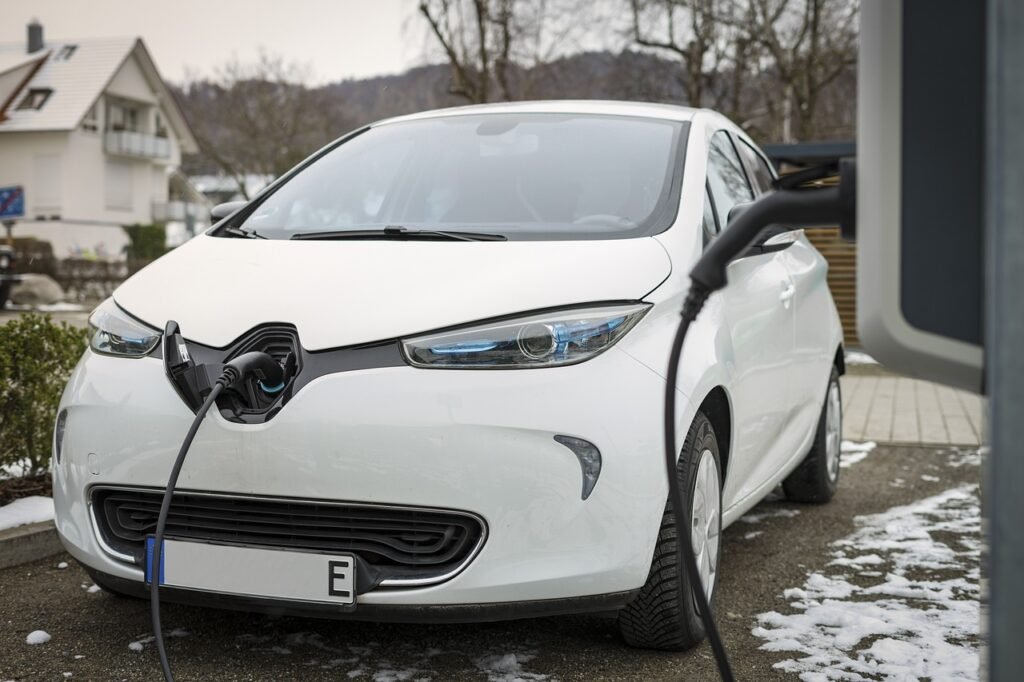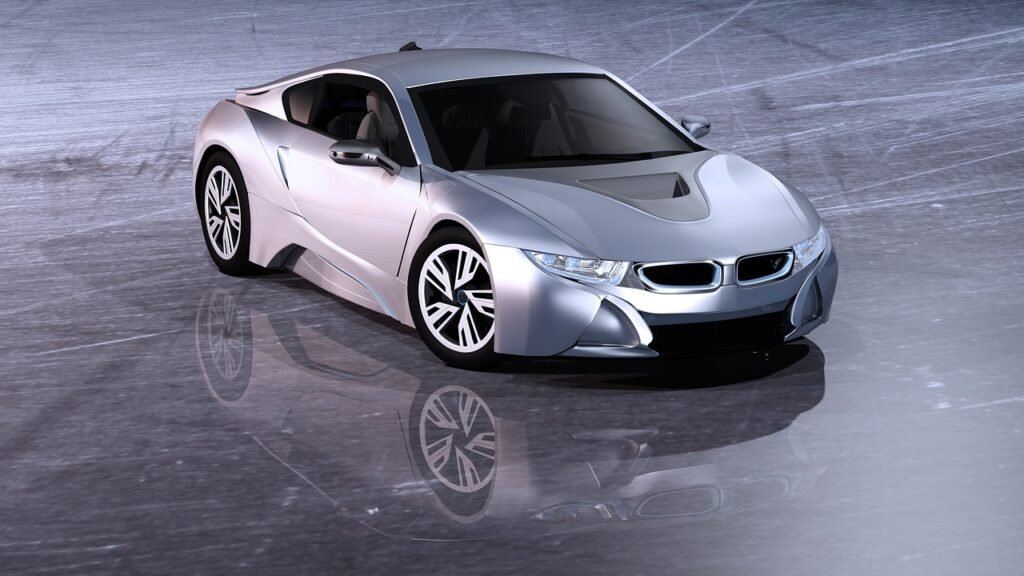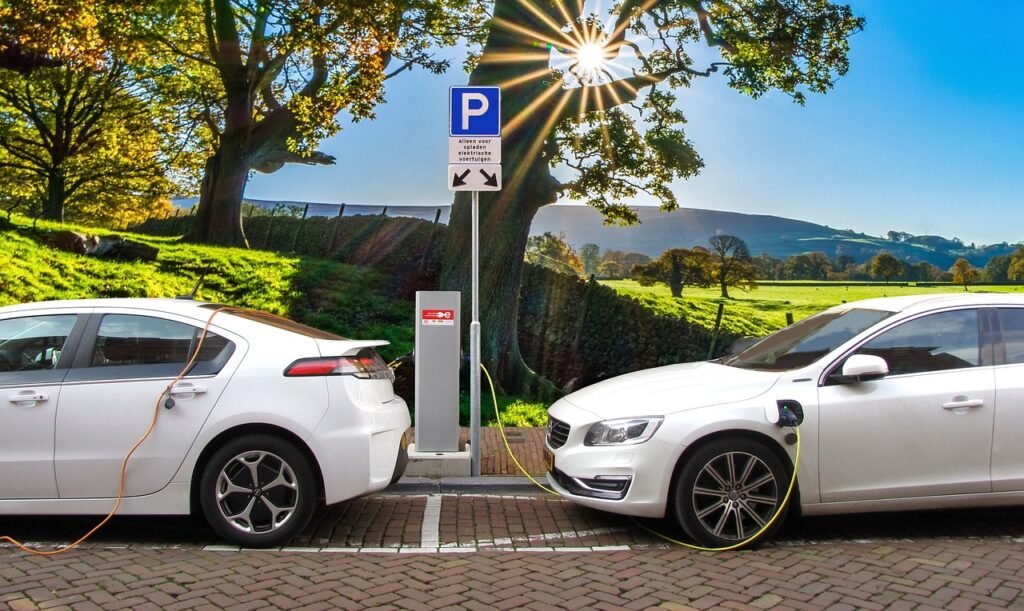Title: Understanding the Functionality and Operation of Electric Cars
Introduction:

The automotive industry has undergone a significant transformation with the advent of electric vehicles (EVs). Electric cars are gaining popularity as environmentally friendly alternatives to traditional gasoline-powered vehicles. This article aims to provide a comprehensive overview of how electronic cars work, covering their key components, charging mechanisms, and the advantages they offer. electric vehical.
electronicduniya.com/index.php/2024/02/22/role-of-electronic/
Electric Vehicle Components:

Electric cars are propelled by electric motors powered by rechargeable battery packs. The key components of an electric car include:
- Electric Motor: The motor is the heart of an electric car, converting electrical energy from the battery into mechanical energy to drive the wheels. electric vehicles
- Battery Pack: The battery stores the electrical energy needed to power the vehicle. Lithium-ion batteries are commonly used due to their high energy density.
- Power Electronics: Convert and control the flow of electricity between the battery and the electric motor. electric vehicles
- Charging System: Allows the battery to be charged from an external power source
Battery Technology:
- Electric cars rely on advanced battery technology to store and deliver energy efficiently.
- Lithium-ion batteries dominate the EV market due to their high energy density, long life, and relatively low weight. electric vehicles
- Battery management systems monitor and optimize the performance of individual cells within the battery pack.
CHARGING MACHANISMS
- Electric cars can be charged through various methods, including:
- Home Charging: Using a standard electrical outlet or a dedicated home charging station.
- Public Charging Stations: Located in various places, these stations provide faster charging options.
- Fast Charging: High-power chargers that can significantly reduce charging times.
- Charging infrastructure is crucial for the widespread adoption of electric cars.
Regenerative Braking:
- Electric cars often feature regenerative braking systems, which capture and convert kinetic energy back into electrical energy during braking.
- This technology enhances energy efficiency and contributes to extended driving ranges
Electric Vehicle Range:

- The range of an electric car refers to the distance it can travel on a single charge.
- Factors affecting range include battery capacity, driving conditions, and the efficiency of the electric motor.
Advantages of Electric Cars:
- Environmental Impact: Electric cars produce fewer emissions and contribute to a reduction in air pollution.
- Lower Operating Costs: Electric vehicles generally have lower maintenance and operating costs compared to traditional vehicles.
- Energy Efficiency: Electric motors are more efficient in converting energy into motion than internal combustion engines
Challenges and Considerations:
- Charging Infrastructure: The availability and accessibility of charging stations are essential for the widespread adoption of electric cars.
- Battery Degradation: Over time, battery performance may degrade, impacting the vehicle’s range.
- Initial Cost: While operating costs are lower, the initial purchase price of electric cars can be higher.
Future Trends:
- Ongoing advancements in battery technology aim to improve energy density and reduce costs.
- The development of solid-state batteries and other emerging technologies may revolutionize the electric vehicle industry.
Conclusion:
Electric cars represent a promising and sustainable future for the automotive industry. As technology continues to advance, addressing challenges and enhancing infrastructure will play a pivotal role in accelerating the adoption of electric vehicles worldwide. Understanding the fundamental workings of electric cars is crucial for both consumers and policymakers as they navigate the transition to a cleaner and more sustainable transportation future.

The Electric Advantage
One of the primary advantages of electric vehicles is their environmental friendliness. Unlike conventional cars that rely on gasoline or diesel fuel, EVs run on electricity, producing zero tailpipe emissions. This means they don’t contribute to air pollution or greenhouse gas emissions, helping to combat climate change and improve air quality in urban areas.
Driving Experience
Many drivers are pleasantly surprised by the performance and driving experience of electric vehicles. Electric motors deliver instant torque, providing quick acceleration and a smooth, quiet ride. EVs are also known for their regenerative braking systems, which capture energy during deceleration and feed it back into the battery, extending driving range and improving efficiency.
Charging Infrastructure
One of the challenges facing the widespread adoption of electric vehicles is the availability of charging infrastructure. However, significant investments are being made to expand the network of charging stations, making it easier for EV owners to recharge their vehicles on the go. With advancements in fast-charging technology, drivers can now replenish their batteries in a matter of minutes, similar to refueling a gasoline car.
Looking to the Future
As technology continues to evolve and battery costs decline, the future looks bright for electric vehicles. Automakers are ramping up production of EVs, offering a wide range of models to suit different preferences and budgets. Governments around the world are also implementing incentives and policies to encourage the adoption of electric vehicles, further accelerating the transition away from fossil fuels.
In conclusion, electric vehicles are revolutionizing the way we think about transportation, offering a cleaner, more sustainable alternative to traditional cars. With their environmental benefits, cost savings, and enjoyable driving experience, EVs are poised to play a key role in shaping the future of mobility. Whether you’re considering making the switch to electric or simply curious about the technology, there’s never been a better time to join the electric revolution.